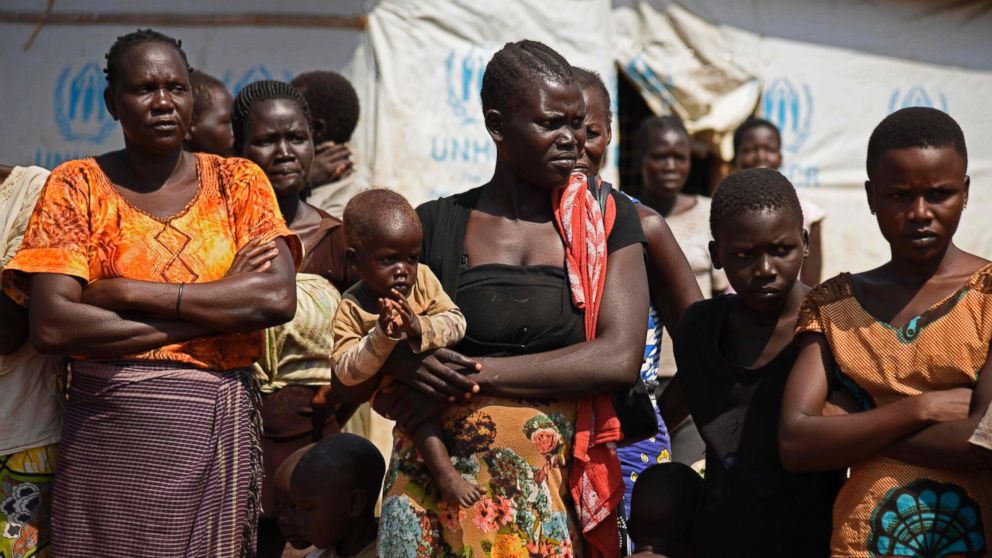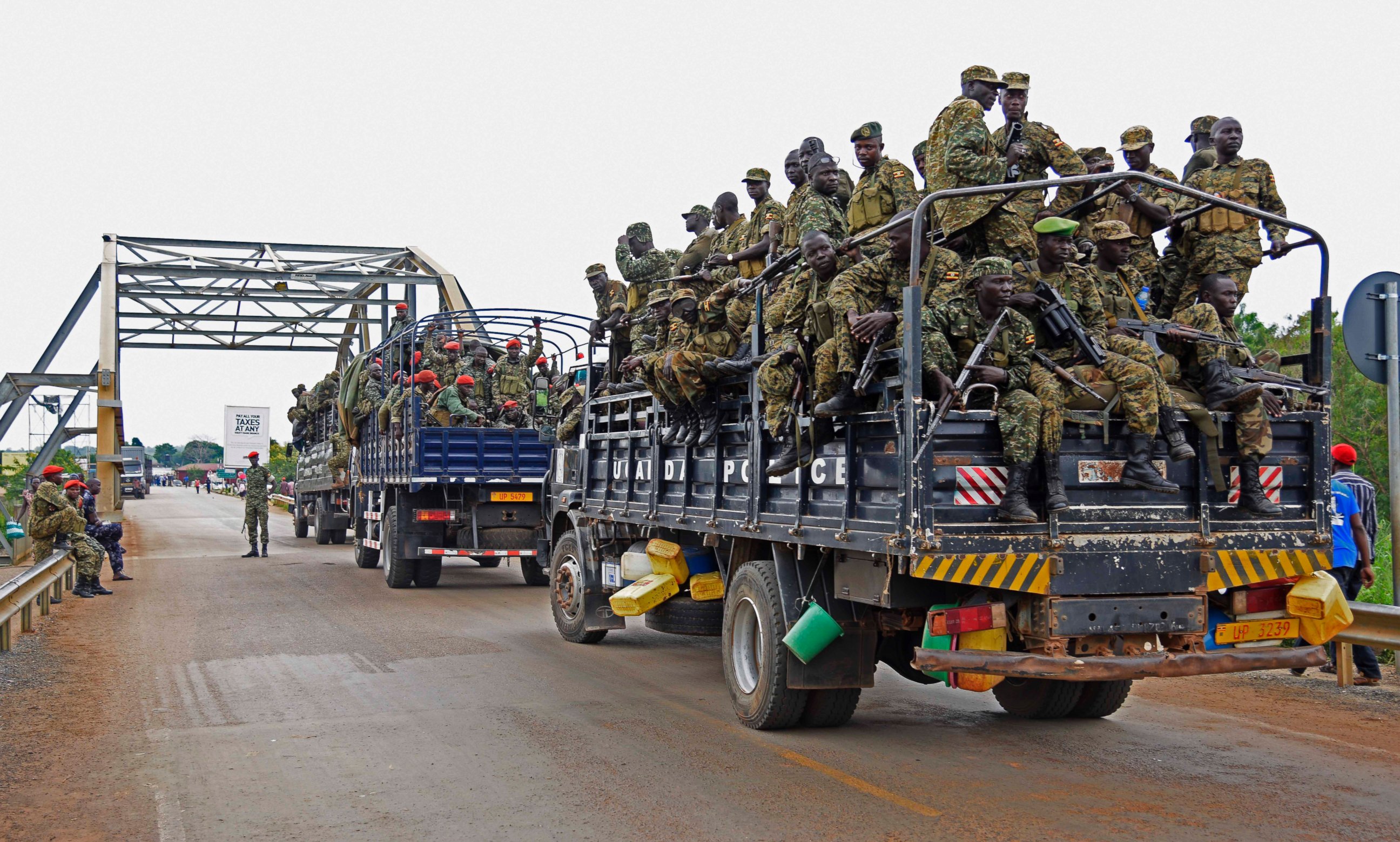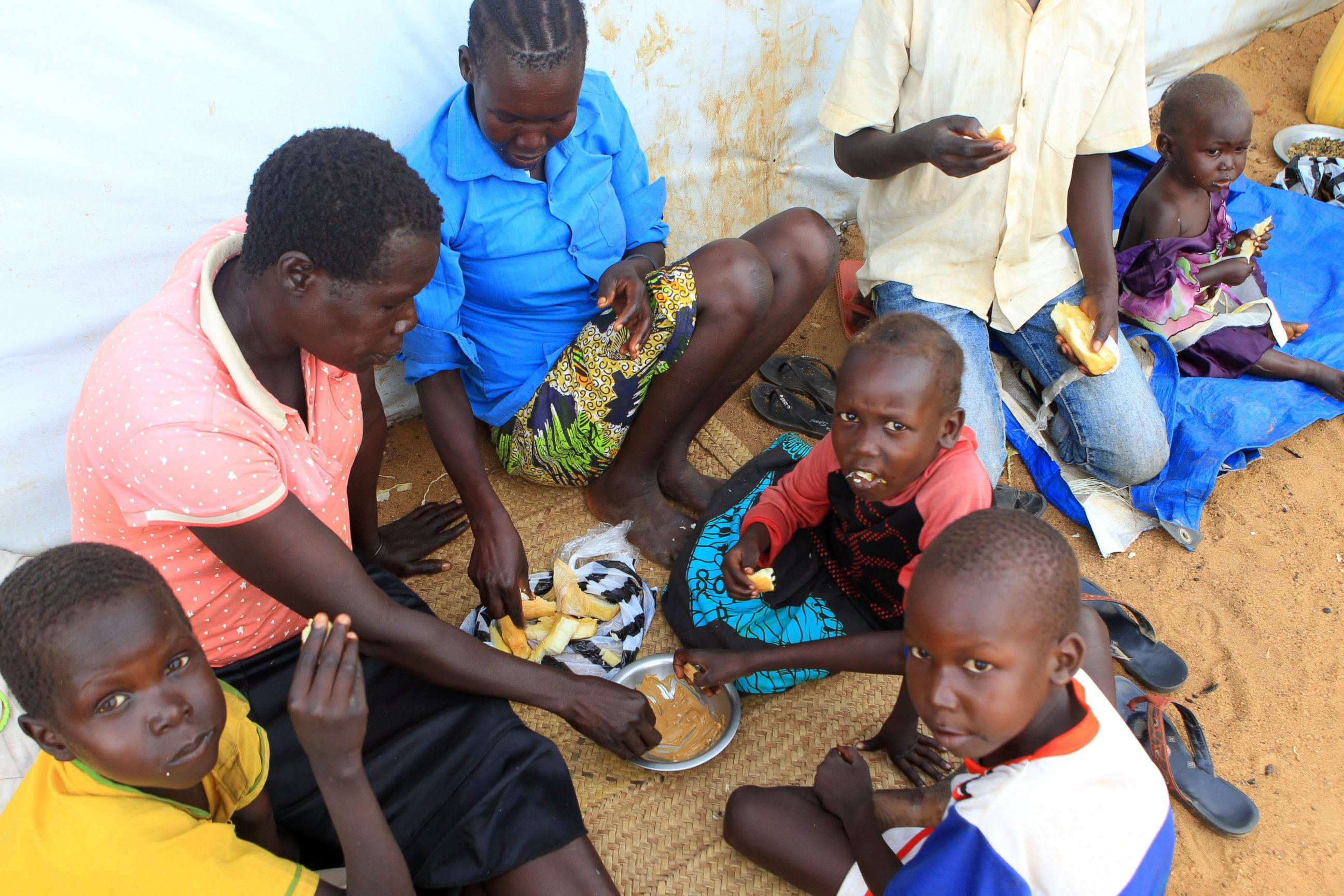South Sudan's Crisis Leads More than a Million of its People to Flee
The number of South Sudanese refugees surpassed the million mark this week.

— -- The number of South Sudanese refugees taking shelter in neighboring countries soared past the 1 million mark this week, according to the United Nations High Commissioner for Refugees.
South Sudan, the world’s youngest nation, joins Syria, Afghanistan and Somalia as countries that have produced over a million refugees.
“Most of those fleeing South Sudan are women and children,” United Nations refugee agency spokesperson Leo Dobbs said at a press briefing in Geneva today. “They include survivors of violent attacks, sexual assault, children that have been separated from their parents or traveled alone, the disabled, the elderly and people in need of urgent medical care.”
Not long after gaining independence and emerging from civil war, South Sudan was plunged back into conflict in Dec. 2013 when President Salva Kiir sacked his then-deputy Riek Machar and accused him of plotting a coup. The personal rivalry sparked fighting between forces loyal to the president and rebels allied with Machar. It also deepened a rift between two of South Sudan’s largest ethnic groups -- Kiir’s dominant Dinka and Machar’s Nuer tribe.

The sparring sides eventually signed a power-sharing agreement in August 2015 with the promise to end nearly two years of devastating war. Machar returned to Juba in April, more than two years after fleeing the South Sudanese capital and was reinstated as the president’s deputy under the terms of the peace deal.
But Machar fled again this year to an undisclosed location when fighting broke out between his forces and Kiir’s in July. The president gave his first vice president 48 hours to return to Juba before replacing him with Gen. Taban Deng, a move Machar’s spokesman called illegal.
The deposed vice president reportedly sought asylum for several days in the Democratic Republic of Congo. In late August, the country’s information minister told the state news agency that the former vice president was “recently” in Sudan to receive “urgent medical attention.”
Since fresh violence erupted in Juba on July 8, over 185,000 people have fled South Sudan, according to the United Nations refugee agency. Most of them are sheltering in neighboring Uganda, which hosts the lion’s share of all South Sudanese refugees -- 373,626 to be precise. Over the past week alone, Uganda recorded more than 20,000 new arrivals from its neighbor, the UN agency said.
“They keep coming,” Dobbs said. “Many refugees arrive exhausted after days walking in the bush and going without food or water. Many children have lost one or both of their parents, some forced to become primary caregivers to younger siblings.”
South Sudanese government spokesman Michael Makuei Lueth has denied reports of new fighting between Kiir’s supporters and Machar’s. In a statement issued Aug. 2, Lueth said that the troubled peace deal signed last year remained intact.
“The media has been abuzz with news of fighting throughout the country, however, we want to assure the region and the whole world that the cease-fire, which was recently ordered by the president, is firmly holding, and that all those reports are false and baseless,” the statement read in part.

But refugees report increased fighting in southern South Sudan and attacks by armed groups that murder civilians, loot villages, forcibly recruit young men and boys and rape women and girls.
United Nations’ secretary-general Ban Ki-moon recently launched an “independent special investigation” into harrowing allegations that UN peacekeepers did not respond to prevent the abuse, rape and killings of several civilians and foreigners in South Sudan’s war-torn capital.
With no apparent end to the crisis, UNHCR is calling on donors to provide $701 million to further support its South Sudan refugee operations, of which 20 percent has been funded.
“Without further funding and support, we and our partners will struggle to assist the needy with even the most basic assistance,” Dobbs said today.




